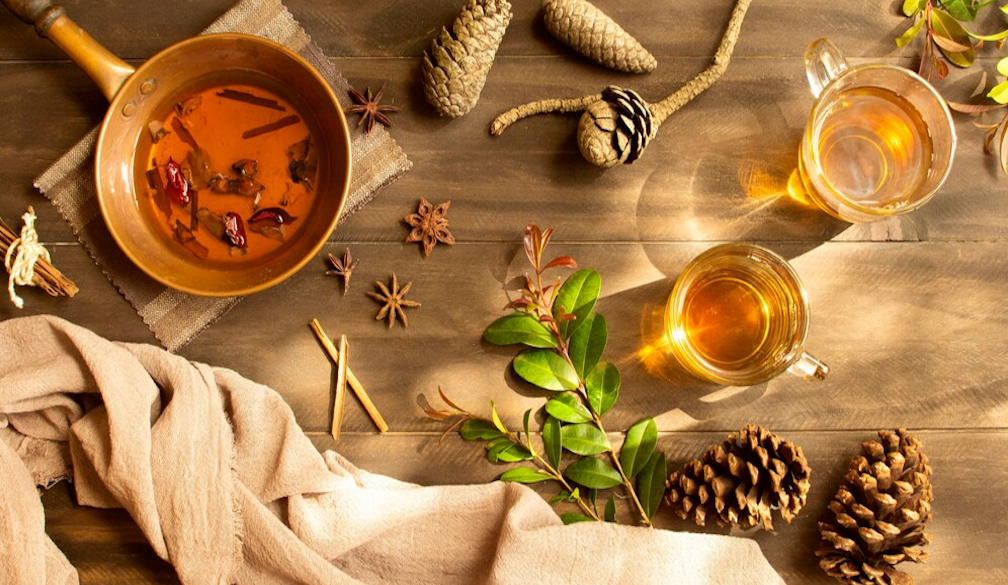The Rising Popularity of Australian Teas and Essential Oil

In recent years, there has been a notable surge in the popularity of Australian teas and essential oils, reflecting a growing global interest in natural remedies and holistic wellness practices.
Australia's diverse landscapes, from lush rainforests to arid bushland, boast an array of botanical treasures that have captivated the attention of wellness enthusiasts worldwide. As people seek sustainable alternatives to synthetic products and embrace traditional healing modalities, the demand for Australian teas and essential oils has soared.
Essential oils and teas hold a special place in Australian culture, deeply rooted in the country's rich history and indigenous traditions. From the vast Australian bushland to the coastal rainforests, these natural remedies have been cherished for centuries for their non-medical therapeutic properties and aromatic delights.
In recent years, interest in these botanical treasures has been resurgent, driven by a growing appreciation for holistic wellness and sustainable living practices.
Today, we're delving into the rising popularity of these natural wonders, exploring their origins, extraction methods, and cultural significance.
Note: This article does not contain medical advice or make any claims to it. It is written to highlight only the history and common uses of Australia's most well-loved and well-known herbs, plants, teas, and essential oils.
Join us as we uncover the allure of Australian teas and essential oils and discover their holistic benefits in today's wellness landscape.
Tea Tree Oil (Melaleuca alternifolia)
Originating from Australia's lush landscapes, tea tree oil is a testament to the country's natural healing heritage.
Distilled from the leaves and twigs of the tea tree, indigenous to regions like New South Wales, this potent essential oil has a storied history dating back centuries.
Traditionally utilised by Aboriginal communities for its remarkable antiseptic properties, tea tree oil has transcended time, finding its place in modern skincare, aromatherapy, and household applications.
Australian Lemon Myrtle Tea (Backhousia citriodora)
From the heart of the Australian bushland emerges a tea steeped in tradition and flavour – Australian lemon myrtle tea. Crafted from the dried leaves of the lemon myrtle tree, this aromatic brew carries the essence of the land's vibrant flora.
Harvesting lemon myrtle for tea drinking typically involves carefully plucking the aromatic leaves from the tree. The leaves are then dried using various methods, such as air or low-temperature drying, to preserve their flavour and therapeutic properties. Once dried, the leaves can be crushed or ground into a fine powder to make tea bags or loose-leaf tea.
Alternatively, lemon myrtle leaves can be used fresh to infuse flavour into hot water, creating a refreshing and aromatic herbal tea. This method is prevalent among those with access to fresh lemon myrtle leaves or who prefer the vibrant taste of freshly brewed tea.
With a history deeply intertwined with indigenous culture, lemon myrtle tea has long been cherished for its refreshing taste and potential health benefits.
Today, it continues to captivate tea enthusiasts with its zesty citrus notes and reputed antioxidant properties, offering a taste of Australian botanical splendour with every sip.
Eucalyptus Oil (Eucalyptus globulus)
Among Australia's most iconic botanical exports, eucalyptus oil has garnered global acclaim for its refreshing scent and therapeutic benefits.
Sourced from the majestic eucalyptus trees that adorn the landscapes of Victoria and Tasmania, this essential oil holds a special significance in indigenous cultures, where it was revered for its medicinal properties.
Eucalyptus oil is typically extracted through steam distillation, which involves passing steam through the eucalyptus leaves to extract the essential oil.
As for the types of eucalyptus species used for oil extraction, there are over 700 species of eucalyptus trees, but not all produce significant amounts of essential oil. Some of the most commonly used species for eucalyptus oil extraction include:
Eucalyptus globulus: Also known as the Tasmanian blue gum, this species is widely cultivated for its high oil content and is one of the primary sources of eucalyptus oil globally.
Eucalyptus radiata: Commonly known as narrow-leaved peppermint or simply eucalyptus, this species is prized for its mild aroma and therapeutic properties.
Eucalyptus citriodora: Also known as lemon-scented gum, this species produces oil with a potent lemony fragrance, making it popular for aromatherapy and natural insect repellents.
These are just a few examples of the many eucalyptus species used for oil extraction, each with its unique aroma and therapeutic benefits.
Today, eucalyptus oil continues to be cherished by families for its ability to alleviate respiratory ailments, soothe muscle discomfort, and purify the air, making it a staple in households worldwide.
Lemon Myrtle Oil (Backhousia citriodora)
Nestled within the coastal rainforests of Queensland and New South Wales, the lemon myrtle tree yields an essential oil prized for its uplifting aroma and versatile applications.
Extracted through steam distillation of its aromatic leaves, lemon myrtle oil has been a cornerstone of Aboriginal traditional medicine, regarded by many for its antibacterial and antifungal properties.
As a modern-day remedy, this citrus-scented oil is used in culinary creations, skincare formulations, and aromatic blends, embodying the essence of Australian botanical luxury.
Australian Peppermint Tea (Mentha australis)
In the verdant landscapes of Victoria, New South Wales, and Tasmania, the peppermint gum tree thrives, offering its leaves as the key ingredient in Australian peppermint tea.
Steeped in tradition and imbued with minty freshness, this indigenous brew has been savoured for generations for its soothing qualities and refreshing flavour.
Australian peppermint tea remains a beloved beverage with a legacy rooted in indigenous medicine. It is esteemed for its reputed digestive benefits, stress-relieving properties, and delightful taste profile.
The Australian essential oils and teas above showcase the country's rich botanical diversity and traditional healing practices. From the renowned eucalyptus oil to the refreshing lemon myrtle tea, these natural remedies offer both therapeutic benefits and flavorful experiences.
Enjoying the rise in popularity of our Australian teas and essential oils is about enhancing our well-being and celebrating the land's beauty and abundant gifts.

